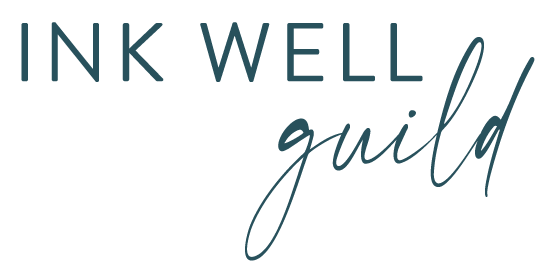Is the course worth it?
When there’s hype and hysteria, ads and chatter, emails and FB posts flying around about whatever the new big course is that’s enrolling… how do you know if it’s the right move for YOU?
In this post, I lay out four situations when it does make sense. Otherwise, you might be looking at some expensive procrastination tactics. I’m also giving you three things to ask yourself before giving it the green light.
Keeping yourself in check is an important part of success, and this is one of the key areas that will make or break your career!
4 Times When Taking A Course Makes Sense
This might not be a completely exhaustive list of when it makes sense to buy a new course, but these are the primary situations when it makes sense to go for the course:
1. You’ve hit a roadblock and this will get you through it. Especially when there’s some sort of accountability element, like in a group coaching program, putting some skin in the game helps pull you through the stuck-ness. Plus you can pick up a few shortcuts so you don’t have to figure it all out.
2. You need a new skill and taking a course will enable you to leap-frog. For example, if you want to start offering a new service, and you’re already making some money with your current services, it might make sense to go ahead and get that $197 course, save yourself time, and start putting the new service out there much more quickly.
3. You’re just starting out and totally green and lost. I’m a big fan of “basics” courses for people who are new, lost, and ready to get started.
4. It makes strategic sense and you can afford it. For example, I bought a course recently that was pretty expensive. I’m a little too busy to go through the course right now, but the price was going up after this open enrollment, I knew I’d have time to focus on it in a couple of months, and it will help me achieve some new business goals really well. Plus the affiliate bonus was worth the cost of the course AND I had enough money socked away. So I went ahead and got it before I needed it and saved a bunch of money on the future price.
Sometimes I’ll buy a course to have my VA learn how to do something for me — that’s another good reason. I’ve also bought courses and other products to learn something about someone before pitching them, but typically I won’t spend more than maybe $50 on that (and often I’ll just look for free content instead).
3 Questions to Ask Yourself Before Buying a New Course
How do you really, really know it’s the right decision? Maybe you’ve gone over those scenarios I laid out and you still aren’t sure. I get it — I’m the queen of “I can see both sides.”
So if you’re in that position, debating whether or not to go for it and not sure what to do, here are three things you can ask yourself:
- Is this necessary to get me to the next level, or is it a shiny new procrastination tool?
- How much time will this actually save me?
- How long will it take before it pays for itself?
Be honest!
Take A Closer Look at the Offer
The thing about buying courses that some of us overlook is that there’s a chemical rush of feel-good hormones when we buy something. Marketers who are really good at building pressure know how to get you interested and even excited about their new offer — they know how to make it sound really good. And maybe it IS really good! But maybe it doesn’t *actually* meet a *real* need that you’re experiencing *right now.*
Whether it’s the promise of a bargain or the urgency of “this is a major problem you need to solve!,” take a look at your reasoning for wanting the course, and then ask yourself those three questions to get clear on whether or not you should move forward.
There have been TONS of times when I really wanted a course because everybody else was in it (hello, B-School) but ultimately, when I looked closely at my situation and at what the course actually offered, it didn’t make sense to enroll.
So is the course worth it?
Only you can decide. And if you’re really on the fence and totally unsure… look for the guarantee. A lot of times guarantees will let you request a refund within a specific timeframe.
That said… a lot of course creators are leery of people who buy in thinking “well I can always get a refund.” The lack of commitment typically indicates that the student won’t be successful. And there’s a lot of truth to that. But if you have, for example, 30 days to refund, no questions asked (like I have for Copy Confidential), then that gives you a lot of time to see if this course will actually deliver on the promises it makes.





This is awesome thanks for sharing these wonderful insights. These help a lot in these difficult times to over come unnecessary hurdles on the work way